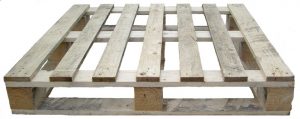All businesses that welcome the public have a legal responsibility to discover any condition on site that may be dangerous, and to either promptly address that hazard or warn invitees of it. 
However, as noted in the 1952 Florida Supreme Court case of Earley v. Morrison Cafeteria Co. of Orlando, the business may assume that invitees will perceive conditions that are obvious upon the ordinary use of his or her own senses. Restated another way, there is no duty by the business to warn patrons of open and obvious conditions. So a business needs to warn about concealed dangers that are known or should be known to the owner and are unknown to the patron and can’t be discovered through the exercise of due care. The business also needs to use ordinary care in maintaining its property in reasonably safe condition.
These standards were all reviewed in a recent case before Florida’s 1st District Court of Appeal, which considered the open and obvious doctrine defense in a trip-and-fall injury lawsuit against a Bay County grocery store. Before the court was a request to consider whether summary judgment in favor of defendant was appropriate when the injured man observed the dangerous condition, but failed to step around the obstacle.
Plaintiff in this case went to the grocery store to make a purchase and also to gather some empty boxes. In the course of this errand, he made four trips in and out of the business. The first time in, he made his purchase and took those items to his vehicle. He then made three additional trips to gather empty boxes and take them back to his vehicle.
At the same time, an employee of a beer supplier was delivering a shipment of beer. The product was stacked on a pallet between the store’s entrance/ exit doors. On the third trip leaving the store, plaintiff said he saw the pallet, but tripped over it, causing him to suffer personal injury.
Plaintiff later filed a trip-and-fall injury lawsuit against the grocery store for being negligent in failing to warn of the dangerous condition and for not ensuring the sidewalk was safe to cross.
During the deposition phase, plaintiff stated he didn’t see the empty pallet until his last trip. Further, he alleged it wasn’t actually the pallet he’d tripped on, but rather several prongs that were sticking out from underneath the pallet.
Defendant filed a motion for summary judgement, which the trial court granted. The court ruled the condition was so open and obvious and ordinary that as a matter of law, it was not inherently dangerous. That meant defendant could not be liable.
On appeal, plaintiff argued the trial court erred in reaching this conclusion.
However, the appellate panel noted plaintiff admitted that he saw the empty pallet, took several steps and then tripped over it. The surveillance video of the incident reportedly refuted the allegation that he’d tripped over the prongs, rather than the pallet itself. Further, plaintiff had changed his course to avoid the pallet the first three times he walked past it. Thus, the condition was open and obvious and plaintiff’s injuries were not compensable.
Call Fort Lauderdale Injury Attorney Richard Ansara at (954) 761-4011. Serving Broward, Miami-Dade and Palm Beach counties.
Additional Resources:
Brookie v. Winn-Dixie Stores Inc., April 4, 2017, Florida’s First District Court of Appeal
More Blog Entries:
Property Owner Liability for Dangerous Road Conditions, March 7, 2017, Broward Premises Liability Attorney Blog
 Broward Injury Lawyer Blog
Broward Injury Lawyer Blog



